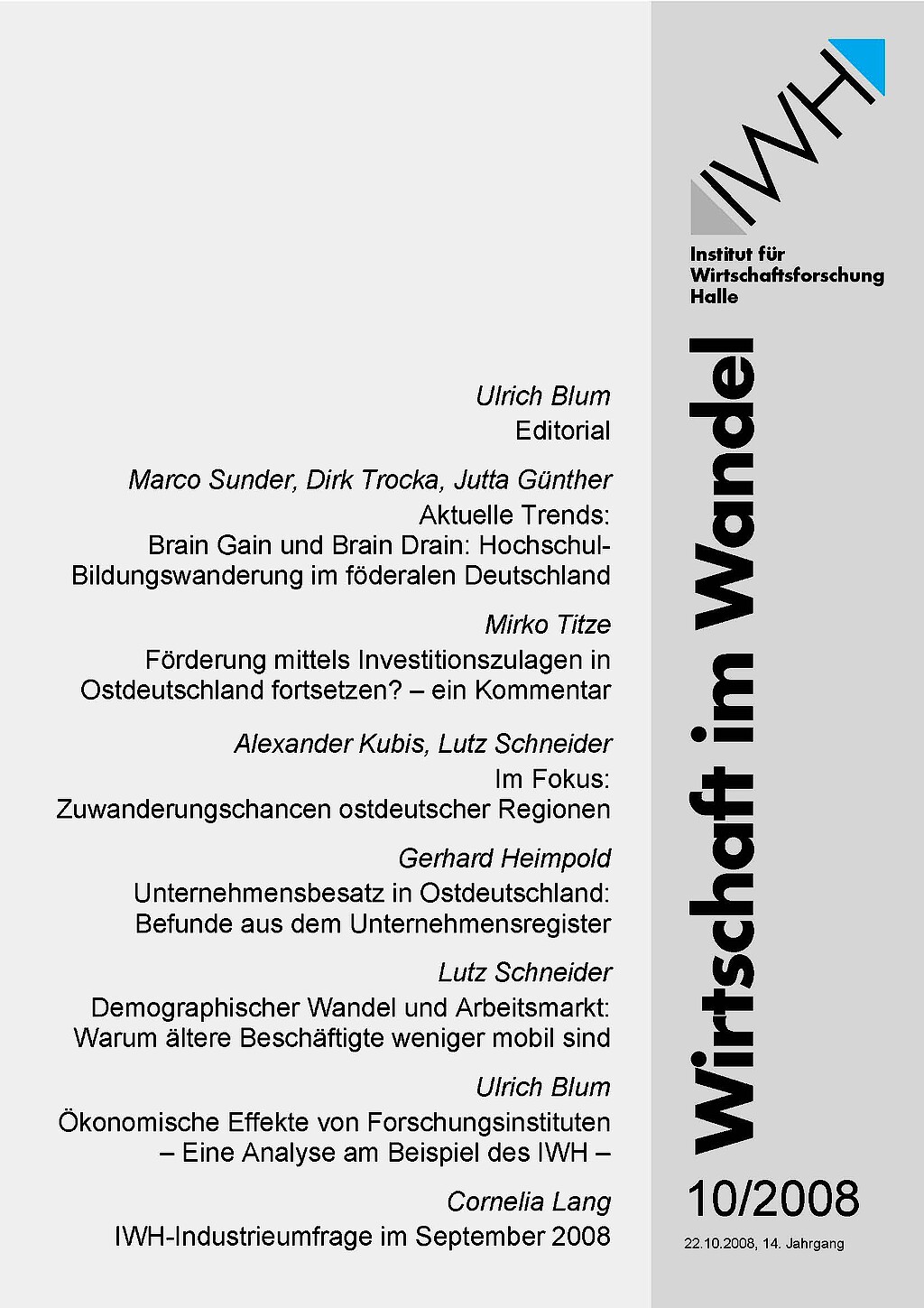
Economic Effects of the Halle Institute for Economic Research
Die öffentlich finanzierte Forschungsinfrastruktur Deutschlands besteht u. a. aus den Hochschulen, den im Rahmen von Bund und Ländern als Gemeinschaftsaufgabe geförderten Forschungsinstituten der Leibniz-Gemeinschaft, der Fraunhofer-Gesellschaft, der Max-Planck-Gesellschaft und der Helmholtz-Gemeinschaft sowie einer Reihe von Ressortforschungsinstituten, die dem Bund und den Ländern für die Erfüllung spezifischer Aufgaben zuzuordnen sind. Sie erfüllen zunächst ihre originären Aufgaben, die sich aus der Art der Institution, beispielsweise einer Universität, die für Forschung und Lehre zuständig ist, aus dem Gründungsauftrag oder dem im Statut definierten Profil ergibt. Neben diesen institutionell gegebenen Leistungen stehen aber oft auch bedeutende Effekte der Stabilisierung regionaler Wirtschaftsstrukturen. Es war insbesondere die schwedische Schule der Regionalökonomik, die darauf aufmerksam machte, dass nachhaltige Verbesserungen in benachteiligten Regionen oft einen stabilen Kern – eine Behörde, eine Hochschule oder eine Forschungseinrichtung – benötigten, um durch die damit bedingten erhöhten Gehälter und die sich entwickelnden Kooperationsstrukturen eine darauf aufbauende nachhaltige Wirtschaftsstruktur zu erzeugen. In Ostdeutschland spielen die öffentlichen Forschungseinrichtungen angesichts der ungenügenden industriellen Forschungsdichte eine besonders wichtige Rolle für die langfristige Entwicklung von Wirtschaft und Gesellschaft. Üblicherweise stehen die Forschungsleistung und ihre Relevanz im Zentrum der Betrachtung. Diese Untersuchung fokussiert auf ökonomische Effekte, durch die die Nachfrage des Instituts nach Personal sowie sonstige Leistungen ausgelöst werden. Beispielhaft wird dies anhand des Instituts für Wirtschaftsforschung Halle ausgeführt. Es wird gezeigt, dass das Institut einen wesentlichen regionalökonomischen Stabilisierungsbeitrag leistet.




